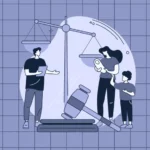Call: (800) 382-3176 or Chat with us
Winning Lawsuits in Florida since 1993
Florida Medical Malpractice Lawyer
You never have to worry about any upfront costs or fees, we work on contingency meaning we only get paid unless you do.




Initiating Lawsuit Action: Our Process
Skillfully filing lawsuits and navigating the initial legal processes
Free Case Evaluation
I’ll first review all the details and evidence you provide. Based on this, I’ll evaluate the strength of your case, understand if you qualify and explain your legal options.
Lawsuit and Discovery
I’ll file a lawsuit on your behalf and then enter the discovery phase, where I’ll gather and exchange detailed information about your case with the other party.
Negotiations and Trial
I’ll work to settle your case through negotiations, but if a satisfactory settlement isn’t reached, I’ll represent you at trial, where a judge or jury will make the final decision.
Millions Won in Victories
Our team has millions won in victories for our clients. This large amount is a sign of our strong effort and success in legal challenges. It’s not only about winning money; it’s about fairness and helping you. We’re committed to fighting for your best interests.
4.8/5 Reviews (500+)


Who can we Sue?
Addressing errors and negligence by health professionals with dedicated expertise.
Your Florida Rights
Defending Your Legal Rights in Florida with Expertise and Dedication
Florida’s legal system sets firm deadlines for filing claims, known as the Statute of Limitations. This crucial timeline varies depending on your claim type. For instance, personal injury claims typically have a 4-year limit, while medical malpractice suits are often limited to 2 years from the date of the incident or discovery of harm. It’s imperative to act promptly to safeguard your right to seek justice.
Struggling to access essential medical records? You’re not alone. This common hurdle can be a major roadblock in your claim. Our team specializes in overcoming these obstacles, ensuring your case is backed by comprehensive and crucial medical documentation. Trust us to leave no stone unturned in fortifying your claim.
“Am I getting a fair settlement?” This question is at the heart of every case. Our experts excel in evaluating your claim’s worth, striving to maximize your compensation within Florida’s legal parameters. We’re here to ensure you understand the potential value of your case and work tirelessly to achieve it.
In Florida, family members can indeed make claims in specific scenarios, including probate, personal injury, or wrongful death situations. Our approach is to educate you on your rights and the options available for seeking justice for your loved ones. Empowerment comes from understanding, and we’re here to guide you through every step.
Feeling uncertain about the legitimacy of your claim? Let our legal experts provide the clarity you need. We specialize in evaluating the merits of your case, offering honest and straightforward guidance on its potential. Our goal is to give you a clear perspective on where you stand legally and how we can help.
“How long will my case take?” This question is paramount for many clients. While every case is unique, our experience across a spectrum of claims in Florida gives us the insight to offer a realistic timeline, from the initial filing to the final resolution. We’re committed to keeping you informed and prepared at every stage of your legal journey.
What Our Clients Say: Triumphs in Medical Malpractice
Expertly Navigating Medical Malpractice Law in Florida with Unwavering Dedication

Percy was great! He is professional, understanding and worked diligently until the end! Thanks for your hard work. Highly recommend!!!!
Leslie Jimenez – Client

I would recommend any one who has been injured in an accident to visit the office of Percy Martinez. He is a very trust worthy, persistent, friendly and honest person, who is determined to help others. His staff is bilingual , inviting and easy to work with.
Slavi Pantev – Client
Efficient, Zero-Risk Case Review: Confidential & Customized
Start with confidence. Our swift, risk-free review promises a detailed, personalized analysis of your case, ensuring discretion at every step. We pave the way for your legal journey with precision and care.





